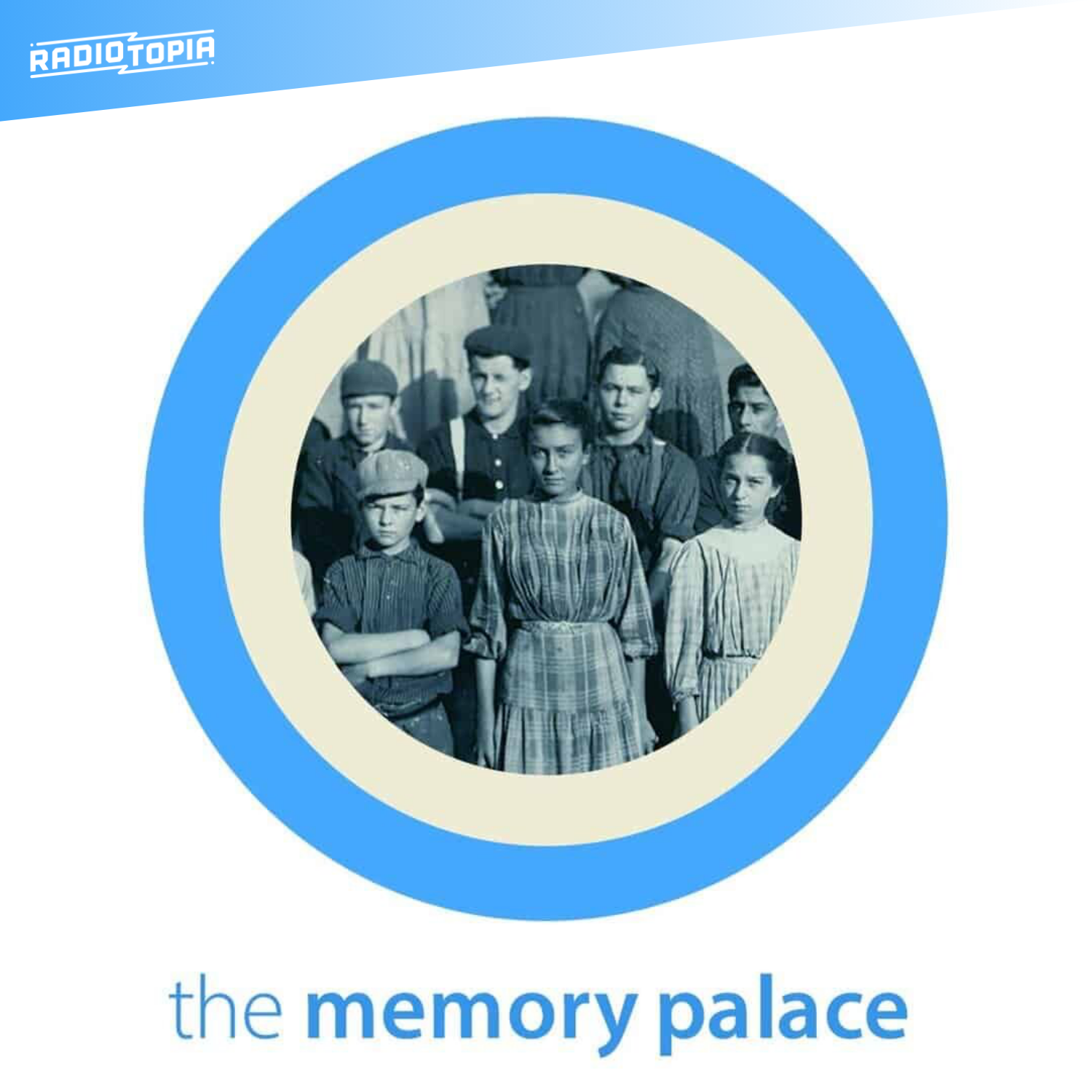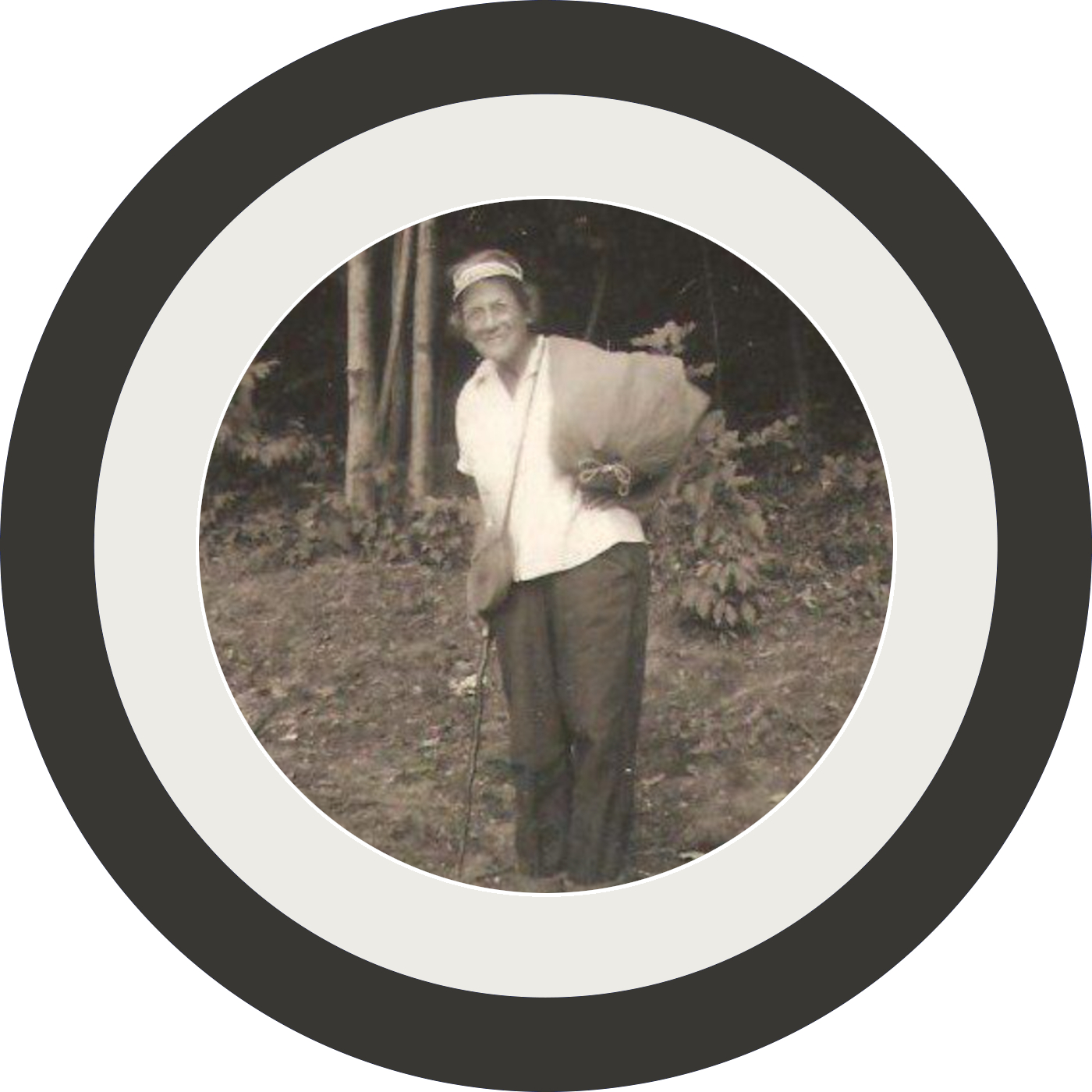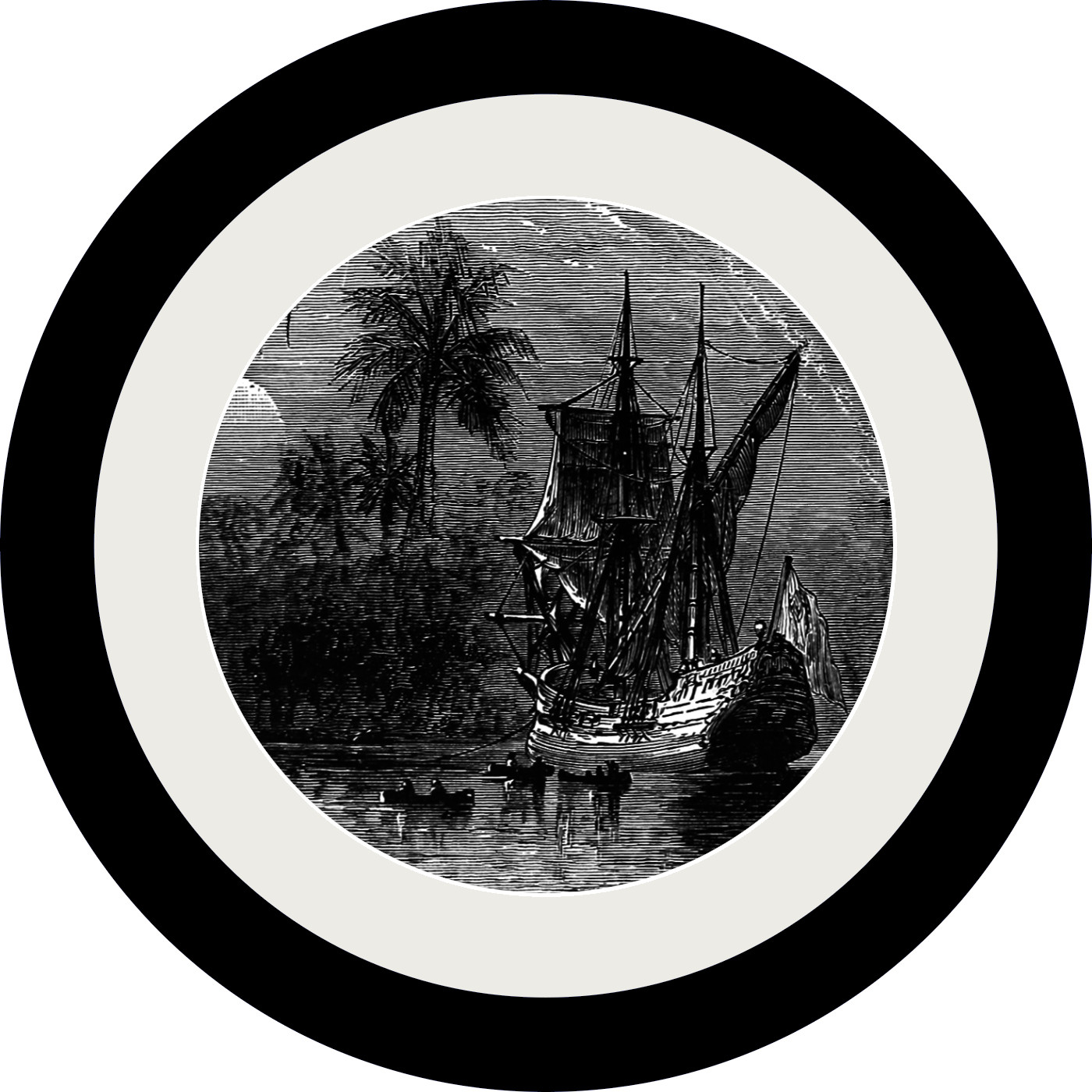Episode 227: A Brief Note Written After Learning the National Parks Service Removed the word Transgender from Stonewall'
Order The Memory Palace book now, dear listener. On Bookshop.org, on Amazon.com, on Barnes & Noble, or directly from Random House. Or order the audiobook at places like Libro.fm.
The Memory Palace is a proud member of Radiotopia from PRX. Radiotopia is a collective of independently owned and operated podcasts that’s a part of PRX, a not-for-profit public media company. If you’d like to directly support this show, you can make a donation at Radiotopia.fm/donate. I have recently launched a newsletter. You can subscribe to it at thememorypalacepodcast.substack.com.
Music
- Pockets of Light by Ludomyr Melnyk
- All in Circles and Janvie by Shida Shahabi
- Between Trees by Akria Kosemura
Notes
- There are a million things to read about Stonewall, but the thing that I feel like deepened my understanding enough was The New York Public Library's The Stonewall Reader. Particularly the audiobook. Couldn't recommend it enough.
Learn about your ad choices: dovetail.prx.org/ad-choices
Press play and read along
Transcript
Speaker 1 Support for this podcast and the following message come from Sutter Health.
Speaker 1 Cancer diagnosis can be scary, which is why Sutter's compassionate team of oncologists, surgeons, and nurses work together as one dedicated team, providing personalized care for every patient.
Speaker 1 It's a whole cancer team on your team. Learn more at Sutterhealth.org.
Speaker 2 This episode of Memory Palace is brought to you by LifeKid. When you're a kid, you need all sorts of help, learning your ABCs, tying your shoes.
Speaker 2 Then you become a teenager and a young adult, and if you are like I was, you need all sorts of help, but you are hardly asking for or accepting any of it.
Speaker 2 Then you get older, you start looking around and thinking there has got to be a better or faster or safer way to do this thing, whatever that thing might be.
Speaker 2 And while you are looking around, you will notice that there's a ton of nonsense. There are a lot of quick fixes, a lot of just mumbo-jumbo.
Speaker 2 But then there's Life Kit, a podcast from NPR, where you can find thoughtful, expert-guided ideas and techniques about tackling issues in this thing we call Life.
Speaker 2 LifeKit delivers strategies to help you make meaningful, sustainable change. And the show is fun.
Speaker 2 You're flipping through episodes and bopping around thinking, yeah, I do kind of want to know what this whole thing is with seed oils and hear from people who really know and sort out the science from the hype.
Speaker 2 And then you put it on and it is delightful and informative. And then you're kind of idly listening to this one about how you can avoid buying counterfeit products online.
Speaker 2
And you're like, yeah, I do that technique. And yeah, I know that one too and yeah, sure, that one.
I'm no dummy. But then you hear a couple more and you're like, oh shoot.
Speaker 2
Yeah, I almost fell for that yesterday. And oh, yeah, I need that one for my back pocket.
LifeKit isn't just another podcast about self-improvement.
Speaker 2
It is about understanding how to live a better life. Starting now.
Listen now to the LifeKit podcast from NPR.
Speaker 2 This is the Memory Palace. I'm Nate DeMayo.
Speaker 2 A brief note after learning that the National Park Service has removed references to transgender people from the official webpage of the Stonewall National Monument in New York.
Speaker 2 I am reading this aloud on the 10th of March 2025.
Speaker 2 The time stamp is important, I think, so that you, listening to it, whenever you are listening to it, can do your best to contextualize or pinpoint or maybe recover the meaning of these words, how they were first spoken.
Speaker 2 Though as I read them now, mere days after I first started to write them, I can feel that that meaning has shifted somehow, already.
Speaker 2 Has been changed by circumstances that seem to be changing so quickly these days, in this particular historical moment, in ways that might not make sense to someone listening to this in the future.
Speaker 2
And if you are listening in the future some years from now, just trust me. Time feels strange right now somehow.
At least here in the United States.
Speaker 2 And I suppose I'm saying all this in this odd way, probably off-putting way, because I want you to know that language changes. The words we use, how those words get used, by whom, and to what ends.
Speaker 2 Which I assume you know, but I want you to know, know, to hold on to that idea, and keep it with you, floating vaguely in that space that thoughts occupy when you really think about thoughts.
Speaker 2 And I want you to know that this language, the words that the Trump administration has targeted here, is part of a broader project.
Speaker 2 a political project, a historical project, a whole thing that I could talk about for something like forever, but I don't want to.
Speaker 2 I want to keep the focus tighter on one word, transgender, that has been removed from this one webpage.
Speaker 2 On February 12th, 2025, that page read, I quote, before the 1960s, almost everything about living openly as a lesbian, gay, bisexual, transgender, or queer, and then in parentheses, LGBTQ plus, person was illegal.
Speaker 2 Then the next day, and each day since, at least at the time of this recording, it has read, quote, before the 1960s, almost everything about living openly as a gay, lesbian, bisexual person, which is grammatically lazy and confusing, but we'll move on, was illegal.
Speaker 2 And then in parentheses and further down the page in the caption to a clickable image of rainbow flags, it reads, LGB.
Speaker 2 What are LGB flags and what days should we celebrate them? Click here to find out.
Speaker 2 There were transgender women at Stonewall.
Speaker 2 They didn't call themselves that when they were there. Some who were there, as I understand it, though I may not, let's acknowledge that.
Speaker 2
Some who were there, who are still with us today, some 55 years later, still don't use that word to describe themselves. And so I don't say this to rebut them.
I wouldn't dare to.
Speaker 2 I literally would not dare to.
Speaker 2 But there were trans women at Stonewall. They were there most nights before the riots.
Speaker 2 or the uprising or revolution, pick your word, language changes, that took place over the course of six nights in the summer of 1969. The Stonewall Inn had begun operating as a gay bar in 1967.
Speaker 2 It was run by the mob, the mafia, La Cosa Nostra, an organized criminal syndicate, whatever you want to call it. And in some ways, it had to be that way.
Speaker 2 Because the Genovese crime family that owned and ran the Stonewall knew how to run illegal operations. And what was happening at the Stonewall was illegal.
Speaker 2
The solicitation of homosexual relations was illegal. Serving alcohol to suspected homosexuals was illegal.
Cross-dressing was illegal. Same-sex kissing, never mind sex.
Close dancing wasn't legal.
Speaker 2 But the mob paid off the cops. And the cops would lay off the stonewall, for the most part.
Speaker 2 Though about once a month they'd roll in for whatever reason, a show of force, make a quota, extract a larger bribe, what have you. They'd show up, they'd arrest some people, confiscate some liquor.
Speaker 2
But on on most nights, people just got to be who they were there at the Stonewall down on Christopher Street. Meet some people who were like them, who might like them.
Maybe fall in love.
Speaker 2
Maybe just dance. Maybe just drink by themselves.
Go home wishing they'd talk to someone. Maybe come back the next night and maybe be just a little bit braver.
Speaker 2 Just live, if only for the evening, a bit more closely to truly living.
Speaker 2 To living truly.
Speaker 2 And there would be trans women there.
Speaker 2 If you listen to the oral histories or read the memoirs of people looking back on their lives during the Stonewall riots or read articles and manifestos, diaries written just then in the immediate aftermath, 1969, 70, you can't help but notice that language changes.
Speaker 2 The words they use to describe themselves, and describe their lives at that time is in flux. It's contingent, it's often archaic, and sometimes bracingly not.
Speaker 2 The language of today, of queens and girls and sisterhood and hormones and transition being spoken into being.
Speaker 2 The language of people figuring out who they were and what to call themselves, how they might live in a world that doesn't want them to figure that out or express it outwardly in any way.
Speaker 2 These are the first people to take hormones, to undertake experimental procedures, to seek gender-affirming care, or to not, to wrestle with what that might mean physically, psychologically, socially, culturally, linguistically.
Speaker 2 They were at the Stonewall Inn.
Speaker 2 They were on the street, they were at the parties, they were riding subways, they were living their lives risking violence, enduring violence, getting arrested regularly, getting harassed and assaulted.
Speaker 2 regularly, navigating places even like the Stonewall where people didn't like the way they lived or the words they used.
Speaker 2 If you listen to the oral histories, read the memoirs, read the books, there are so many now about Stonewall, about the riots, the uprising, what have you, you will notice that the history is hard to pin down.
Speaker 2 No matter how many interviews are done, how many archives are built, no matter how thorough the research of any individual historian or of all historians in the aggregate, There are still things we don't know and won't.
Speaker 2 Despite the fact that there were hundreds, maybe thousands of eyewitnesses that first night, because memory is strange, and riots are chaotic. We don't know who threw the first stone.
Speaker 2 The police came around 1.30 in the morning and raided the stone wall. Again, just another raid, but this time for reasons that historians and participants can't really pin down.
Speaker 2 The patrons didn't go quietly.
Speaker 2 There are conflicting accounts of just what went down and when and how, how it was that the police got pushed back and barricaded themselves in the bar, which patron was the first to be beaten with a baton, who in the crowd threw the first stone, or penny or bottle or brick, who was the first to shout gay rights, and was that the first time people had shouted that?
Speaker 2 How many people were even in the bar? How many trans women? How many men in drag were dragged into the bathroom to have a policewoman inspect their bodies? to see which jail they would be sent to.
Speaker 2 A humiliation that was all too familiar. How many people rushed to the scene to shout at those cops or just see what the commotion was all about?
Speaker 2 How many were gay? How many were men? How many were women? How many wouldn't claim either designation? How many were white? How many black? Puerto Rican? And who picked up the first stone?
Speaker 2 Literal, metaphorical, and threw it? Who said, enough? This is enough.
Speaker 2 We're not taking this anymore.
Speaker 2 For half a century, people have worked through the record, worked through the artifacts, worked through the language, to try to tell the story of Stonewall.
Speaker 2 People have fought about it, politicized it, internecine squabbles, factional struggles, academic arguments, righteous, ridiculous, venal, vital. All of it.
Speaker 2 That is how history gets made and gets written. All of it, the fights, even the politicization, has pushed the story of Stonewall to be more complicated, more inclusive, and therefore more true.
Speaker 2 For decades it was a story told by and about white gay men, but by the time the Obama administration created the Stonewall National Monument in 2016,
Speaker 2 trans women were at the center of the story.
Speaker 2 We're there at Stonewall.
Speaker 2 We're picking up a stone.
Speaker 2 And now a new administration is trying to remove them from the story by removing a word
Speaker 2 that they were there.
Speaker 2 There were people there.
Speaker 2 There are people here.
Speaker 2 And there are stones.
Speaker 2 This episode of The Memory Palace was written and produced by me, Nate DeMayo, in March of 2025.
Speaker 2 This show gets research assistance from Eliza McGraw, who is a proud member of Radiotopia, a network of independently owned and operated listener-supported podcasts from PRX, a not-for-profit public media company.
Speaker 2 This show is a member of Radiotopia because here I get to make this show precisely how I want to.
Speaker 2 If you ever want to support this show and support independent media, you can make a donation at radiotopia.fm slash donate.
Speaker 2 If you want to follow me on social media, you can do so on BlueSky at Nate DeMayo, on Facebook and Twitter at Thememory Palace, on Instagram and Substack at the Memory Palace podcast.
Speaker 2 You can always drop me a note at nate at thememorypalace.org.
Speaker 2 I am going to be announcing some book tour dates very soon, including something that just came up in New York City in June that I'm very excited about and will be especially exciting for those of you who have been kind enough to buy the Memory Palace audiobook.
Speaker 2
You can buy it and the book book wherever you do that sort of thing. I will talk to you soon.
In the meantime, take care of each other.
Speaker 2 Radiotokia
Speaker 2 from PRX.




